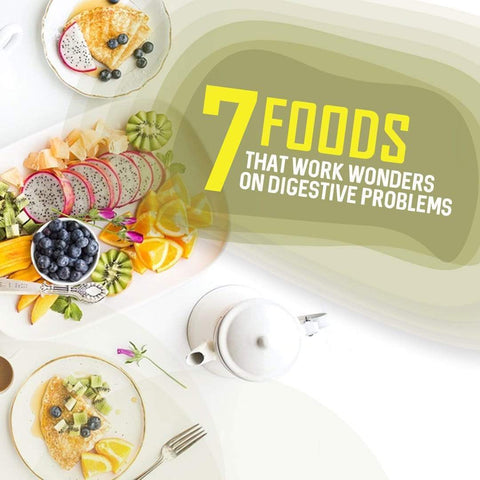
The microbiome of bacteria in your intestines is extremely crucial to your health. In fact, you wouldn’t be alive without these bacteria.
Research has associated imbalances in the gut microbiome with many diseases such as inflammatory bowel disease, cardiovascular disease, and asthma 1. The bacteria in your gut affect nearly every part of your body: your skin, brain, immune system, etc.
Most of us know that supplementing with probiotics is one way to bolster the bacteria ecosystem in your gut. But is there a way to simply eat yourself toward a healthier gut? Yes, many foods have been shown to bolster gut bacteria.
There’s a long list of foods that either contain probiotics or feed probiotics and promote their growth in your gut.
Top Probiotic Foods
1. Tempeh

Tempeh is a thick plant-based protein source that is made from fermented soybeans. In a model of the gut ecosystem, tempeh is evidenced to cause a rise in the beneficial Lactobacillus type of bacteria [2].
The soybeans in tempeh have been fermented to get rid of the phytic acid, which is an irritant and inhibits the absorption of nutrients. Because of the fermentation, you get a more nutritious and probiotic-rich food.
Tempeh is also rich in B vitamins and is packed with protein.
Exclusive Bonus! Download the FREE report ‘32 Top Ways To Boost Digestive Health’ by clicking here.
2. Oats
Oats can stimulate the growth of beneficial types of bacteria because they’re packed with fiber that feeds your probiotics 5. Researchers have directly witnessed oats having prebiotic effects on good bacteria and have seen increased levels of probiotics in animals fed oats 3,4,5.
So have a bowl of oat cereal if you want to keep your gut healthy and colonized with probiotics.
3. Asparagus

Asparagus is often cited as a powerful prebiotic because of its oligosaccharide and inulin content 6. So after you eat asparagus, this veggie will glide through your guts, feeding the good guys. The fiber content will also help keep everything moving, and it's possible that the glutathione content in asparagus could help detoxify the colon.
4. Sauerkraut
Fermented cabbage is one of the oldest traditional foods around. In Germany, fermented cabbage took the form of sauerkraut. This fermented food has many healthy attributes including flavonoid antioxidant content and probiotic content 7.
Researchers believe that probiotics in fermented foods are able to avoid being destroyed by our stomach acid, make it into the intestines, and then colonize there 8. So when you eat fermented foods, you are feeding the good bacteria in your gut.
5. Miso Soup
Miso is a traditional Japanese seasoning in which soybeans are fermented with salt and a fungus. The seasoning is usually mixed into a soup.
Along with containing probiotics, miso soup improves digestion9. There’s evidence that it also has healthy effects on blood pressure, heart rate, and balancing the nervous system 10.
6. Leafy Greens (Lettuces)

Various lettuces and greens like kale and chard contain indigestible fiber – inulin – that helps stimulate the growth of probiotics 11. Researchers have specifically witnessed leafy greens stimulating the growth of beneficial lactobacilli and bifidobacteria 11.
7. Yogurt
Researchers generally agree that yogurt has beneficial effects on the digestive system 12. These benefits are a result of the production of good gut bacteria by the yogurt cultures, improving bowel movements and enhancing the gut’s immune system 12.
8. Kombucha
Kombucha is widely available in grocery stores. It is a pleasant lightly sweetened carbonated tea beverage that is fermented by bacteria and yeast. The probiotics and antioxidant acids formed in kombucha are responsible for its health benefits.
A review of research on the health benefits of kombucha concludes that it promotes health in four ways: “detoxification, antioxidation, energizing potencies, and promotion of depressed immunity” 13.
Suffering from constipation, diarrhea, gas or bloating?
You may have an overabundance of bad bacteria or fungi in your gut.
Fortunately, you can fight back with good, healthy bacteria!
Click here to get the FREE report by nutritionist Evan Burns, which reveals 32 digestion boosting foods including bacteria rich, liver detoxing, and colon cleansing foods that are safe, natural and highly effective.









